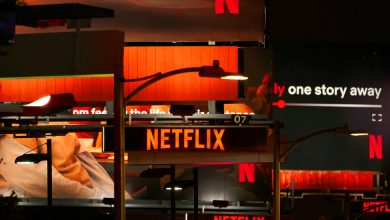Measuring the Risk of Recession

Ups and downs
Carl Icahn said yesterday that a recession “or even worse” was coming. “I think there is going to be a rough landing,” Icahn told CNBC. He isn’t the only one issuing warnings about growth. Economists at the Dallas Fed, in an analysis published yesterday, said that if the bulk of Russian oil exports were cut off for much of this year, “a global economic downturn seems unavoidable.”
Stock traders appear in a more optimistic mood, with the S&P 500 rising in five of the past six trading sessions, regaining much of the ground lost since its early January peak. The signals from bonds are more mixed, but some parts of that market also suggest that traders aren’t betting on a recession coming soon.
Checking in on corporate credit: For much of the past year, BBB corporate bonds — which are the lowest-rated debt still considered investment grade — have performed better, relative to government bonds, than higher-quality debt rated one notch higher. “BBBs are trading very tight to single As,” the Bank of America credit strategist Yuri Seliger told DealBook. The ratio of those bond spreads to government debt is the lowest it has been in a decade.
When lower-rated corporate bonds do better, the economy usually follows. These more risky borrowers tend to show higher growth when the economy is good and higher rates of default when the economy is bad. When investors believe the economy is headed for a recession, they tend to buy higher-quality corporate bonds.
But a strong economy may not be the only reason these bonds are outperforming. Government stimulus during the pandemic has left most companies with more cash and less debt. And less trading in the bond market than a decade ago (bankers say this is because of stricter regulations) can cause momentum trades to last longer than they should. “The way BBB bonds have traded made sense for the past year,” Seliger said. But if the economy is headed for a recession, the trend should have reversed a while ago, he added.
That said, government bonds are flashing economic warning signs. The Treasury yield curve, which measures the difference between rates on short-term and long-term U.S. government debt, has flattened recently, which is usually a sign of a recession. Last week, Larry Summers, a former Treasury secretary who has been warning about the effects of rising inflation, tweeted that he was “not surprised that yield curve shape is increasingly pointing to recession.”
HERE’S WHAT’S HAPPENING
Jamie Dimon urges President Biden to bolster U.S. gas production. In a meeting at the White House with C.E.O.s, the JPMorgan Chase chief called for a “Marshall Plan” to help wean America and Europe off Russian fuel, Axios reports. It’s unclear how receptive Biden officials will be, given their pledges to reduce U.S. carbon emissions.
The U.S. and Britain roll back Trump-era tariffs. Under the terms of a deal reached yesterday, America will lift some levies on British aluminum and steel, while Britain will lift tariffs on more than $500 million worth of goods like American whiskey and bluejeans.
A Starbucks store in its hometown, Seattle, votes to unionize. The 9-to-0 vote makes the store the seventh U.S.-owned location to form a union, out of nearly 9,000. More than 100 stores in over 25 states have filed for union elections; company officials — including Howard Schultz, who is returning as chief executive on an interim basis — have made gestures toward improving worker relations.
BuzzFeed’s first earnings report as a public company makes news. The publisher, which recently merged with a SPAC, reported departures by high-profile editors and warned of slower revenue growth and losses this year. CNBC reported that investors have urged the company to shut down its news operation, which has won numerous awards but is losing money.
No survivors have been found in the China Eastern plane crash. Emergency workers have scoured the southern China hillside, where a Boeing 737 jet crashed Monday, to no avail. They are increasingly focused on finding potential clues to what went wrong.
The latest in the Russia-Ukraine war:
-
President Biden heads to Europe today, where he will press U.S. allies to help impose even more aggressive sanctions against Russia.
-
Companies owned by Russian oligarchs facing sanctions are having trouble paying debts to foreign investors, even though they have the money. Christine Lagarde of the E.C.B. says Russians are using crypto to evade sanctions, while Russia’s richest seek ports where their yachts are safe from seizure.
-
France’s TotalEnergies said it would stop buying Russian oil and BNP Paribas said it would sever ties with Russia, as consumer product firms like Pepsi and P&G struggle to define what counts as “essential” to continue selling in the country.
-
Beijing has balked at pressing Moscow to stop the fighting. Meanwhile, Russian state-owned entities have retained their lobbying operations in Washington because of loopholes in disclosure rules.
-
For up-to-the-minute news, see The Times’s live blog and updated maps.
Conflicts, Congress and stocks
The war in Ukraine has put a new twist on the movement to ban congressional stock trading. As lawmakers call for military aid — with billions in support on the table — some may personally profit through investments in weapons manufacturers, rekindling long-held concerns about conflicts of interest in politicians’ personal portfolios.
“Lawmakers shouldn’t be voting on military spending while they own or trade defense industry stocks. Period,” Senator Elizabeth Warren, Democrat of Massachusetts, told DealBook. She’s a member of the Armed Services Committee and is the sponsor of one of two bills circulating to limit congressional stock activity. Putting restrictions on trading is “a key step to stop lawmakers from abusing their positions for financial gain,” she said.
Representative Marjorie Taylor Greene, Republican of Georgia, wrote on Twitter the day before Russia invaded Ukraine that “war and rumors of war” were “profitable and convenient” excuses for economic turmoil and rising inflation. The previous day, she bought $1,000 to $15,000 of Lockheed Martin’s stock, Congress Trading reported. Greene is one of at least 19 members of Congress with direct personal investments in companies that manufacture weapons going to Ukraine, according to Business Insider.
A House committee is considering changes to the rules governing lawmakers’ trades. It has been reviewing the STOCK Act, which sets out the reporting requirements for trades. It is considering new rules and penalties “to create greater transparency and accountability in Congress,” Representative Zoe Lofgren, Democrat of California and the chairwoman of the House Administration Committee, said recently. A hearing on the issue was scheduled for last week but has been delayed because a member has Covid, a spokeswoman said.
The committee review was initiated after Speaker Nancy Pelosi agreed to consider a ban on the trading of individual stocks by members of Congress. She had previously defended the practice. Yesterday, Congress Trading noted that Pelosi’s husband, an active trader, reported a transaction in Tesla options worth $1,000,000 to $5,000,000.
Senate aides are also facing scrutiny. Rules forbid them from investing in industries under the jurisdictions of the committees they work for, but the Campaign Legal Center sent a letter last week to the Senate ethics committee about a handful of aides who own stocks that appear to break the rules.
“What we’re headed toward is a more divided world economically that will mirror what is clearly a more divided world politically.”
— Edward Alden of the Council on Foreign Relations, on how the pandemic and the war in Ukraine are upending ideas about how stronger global economic ties would lead to greater stability.
A billion-dollar bet on luxury office space
For nearly 50 years, the Transamerica Pyramid — the distinctively geometric 48-story, quartz-clad tower — has been a fixture of the San Francisco skyline. Now its owner, the real estate developer Shvo, is introducing a sweeping renovation meant to mark the return of swanky offices.
The Transamerica campus is being redesigned by Foster and Partners, the architecture firm founded by Norman Foster. The design mandate, according to Shvo’s founder, Michael Shvo, was luxury: An outpost of the Core club, the private members-only club, will occupy one floor; a lounge and gym will feature in the middle of the pyramid; and a private bar for tenants will sit at the top.
“By the time we’re done with the renovation, you’ll feel like you’re in a Four Seasons hotel,” Shvo told DealBook. The block-length site will also gain new office and retail space, and the half-acre Redwood Park at the tower’s base will be overhauled.
It’s a big bet that the business world will re-embrace the office. Shvo’s firm bought the Transamerica site in October 2020 with the aim of transforming the William Pereira-designed site into a luxury corporate campus. “Our role is to help our tenants bring their employees back to the office,” Shvo said. But Shvo’s expensive bet — buying the property cost $650 million and renovating the area will run to some $400 million — comes as many corporate workers don’t appear in a hurry to return to city-center offices.
Shvo has signed up a variety of tenants, including tech companies, law firms and venture capitalists. Just as important, he said, the renovations have enabled the developer to roughly double rents, which as of the 2020 purchase were around $70 to $100 per square foot, defying recent San Francisco trends.
THE SPEED READ
Deals
-
Berkshire Hathaway’s $11.6 billion takeover of Alleghany specifically excludes covering the fees paid to the target company’s bankers at Goldman Sachs. (Bloomberg)
-
Elliott Management and Brookfield reportedly may raise their takeover bid for Nielsen. (Bloomberg)
-
The crypto-focused investor Katie Haun has raised $1.5 billion for two venture capital funds. (Axios)
-
Koch Industries’ latest bet: U.S. battery companies. (WSJ)
Policy
-
In pandemic news: Virginia, the first state to impose Covid workplace rules, has lifted them; the Omicron subvariant BA.2 now accounts for many of the new cases in many parts of the U.S., according to one estimate; and here’s an overview of which countries still require masks on airplanes. (NYT, WaPo)
-
Disney employees walked out yesterday to protest the company’s response to Florida’s anti-L.G.B.T.Q. bill. (NYT)
-
Several groups of Sept. 11 victims are near a deal over how to divide $3.5 billion in Afghan central bank assets being sought to pay off legal claims against the Taliban. (NYT)
Best of the rest
-
Tesla officially began making cars in Europe after opening a $7 billion plan outside Berlin. (NYT)
-
“The Pandemic Wrecked Millions of Careers. These 6 People Built New Ones.” (NYT)
-
MacKenzie Scott gave $436 million to Habitat for Humanity. (NYT)
-
“Divorce Is Down in China, but So Are Marriages” (NYT)
-
The lineup of the Lollapalooza music festival includes Metallica, Dua Lipa, Green Day and … David Solomon, the C.E.O. of Goldman Sachs. (CNN)
Thanks for reading! We’ll see you tomorrow.
We’d like your feedback. Please email thoughts and suggestions to [email protected].



